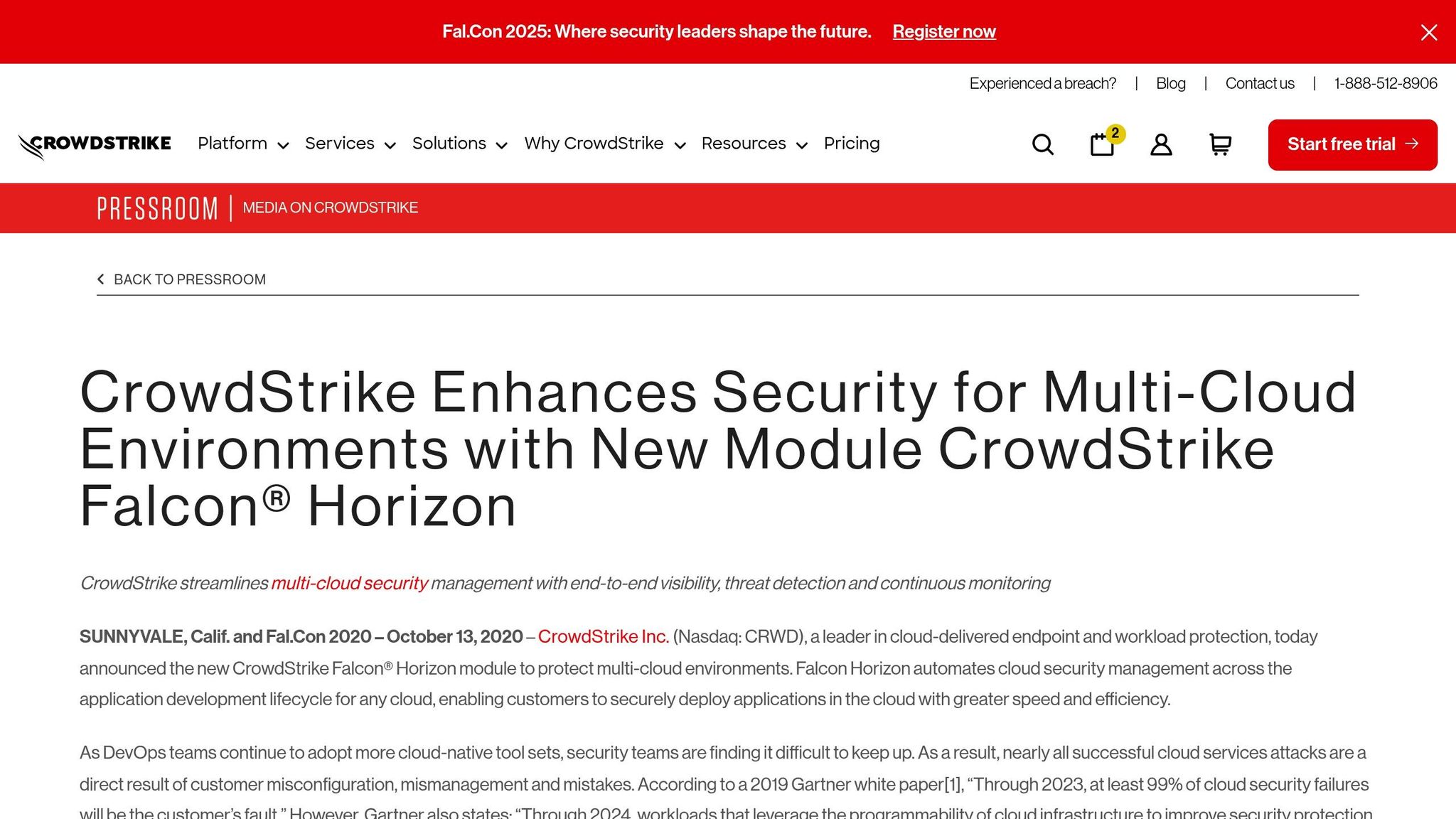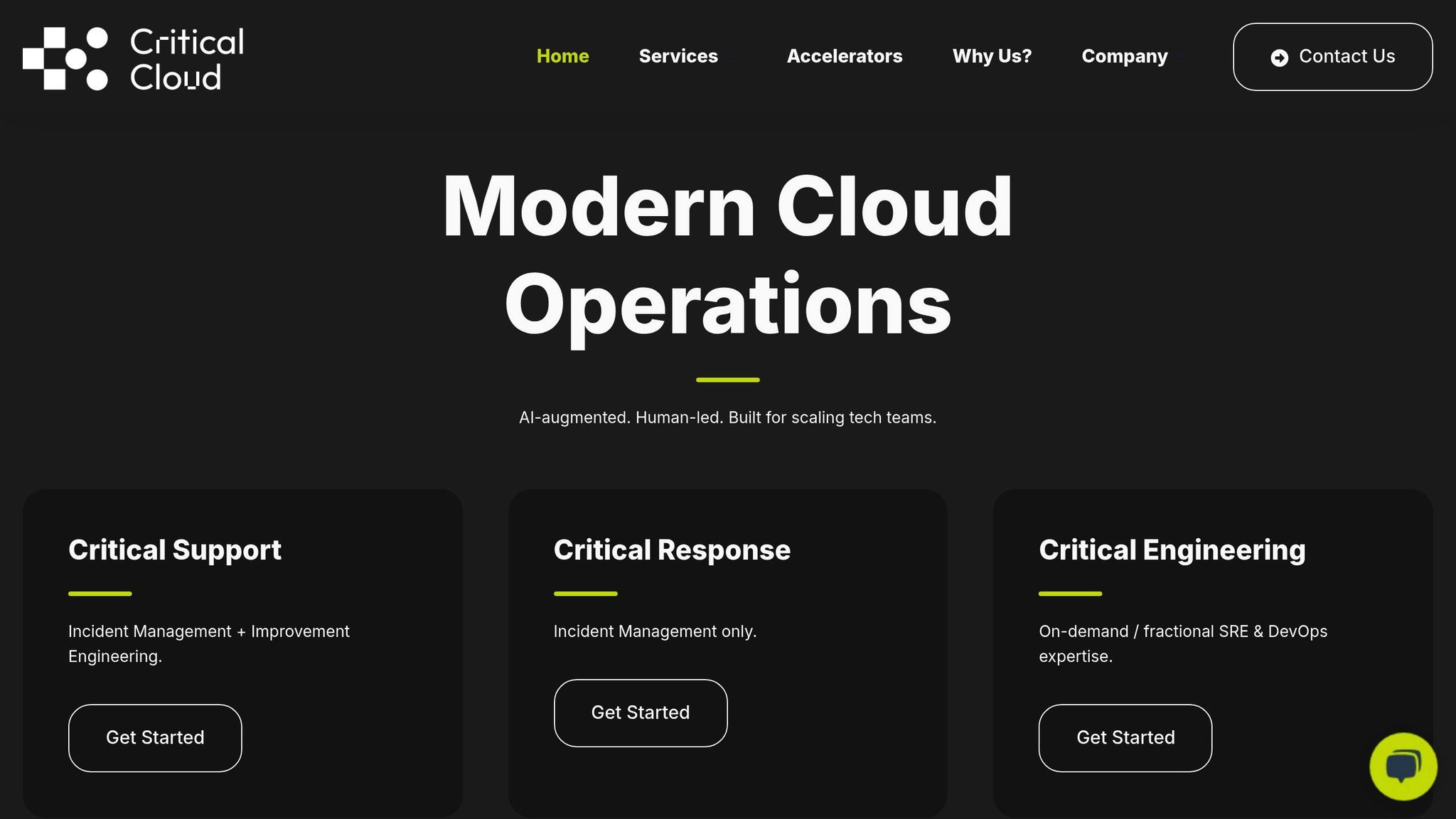How Multi-Cloud Monitoring Supports Compliance
Managing compliance across multiple cloud platforms is challenging, but multi-cloud monitoring tools can make it easier. Here's how they help UK small and medium-sized businesses (SMBs) meet strict regulatory standards like GDPR and the Data Protection Act 2018:
- Real-time Visibility: Achieve oversight across all cloud environments to track data locations and movements.
- Automated Compliance Checks: Tools ensure data residency, detect breaches, and monitor access controls without manual effort.
- Industry-Specific Features: Finance and healthcare organisations can meet FCA and NHS Digital standards with tailored monitoring solutions.
- Centralised Dashboards: Simplify compliance management with unified views of cloud infrastructure.
- 24/7 Incident Management: AI-powered systems and expert support address compliance issues quickly.
Quick Overview of Key Features:
| Feature | Purpose | Benefit |
|---|---|---|
| Real-time Monitoring | Tracks data and security metrics | Ensures ongoing compliance |
| Automated Alerts | Flags suspicious activity | Enables fast response to risks |
| Compliance Reporting | Simplifies audit preparation | Saves time and reduces errors |
With tools like Critical Cloud, UK SMBs can streamline compliance efforts, reduce risks, and focus on their core business goals.
How to Monitor Compliance with Falcon Horizon

Meeting UK Compliance Standards Through Monitoring
Using multi-cloud monitoring tools, UK SMBs can handle strict compliance requirements through automated checks and real-time reporting. These tools cater to specific regulatory needs, such as data protection laws and industry-specific standards.
GDPR and Data Protection Monitoring
Since Brexit, keeping track of data flows and storage locations has become critical for GDPR compliance. Modern monitoring tools simplify this by ensuring data residency and movement align with UK GDPR requirements.
Key features include:
- Data Location Tracking: Automatically updates storage locations, removing the need for manual checks.
- Access Control Monitoring: Tracks user permissions and authentication in real-time to prevent unauthorised access.
- Breach Detection Systems: Sends alerts for suspicious activities or potential breaches, enabling quick action.
Together, these capabilities reduce manual effort and ensure ongoing compliance with UK regulations.
A Martech SaaS Company shared their experience with expert monitoring support:
"Critical Cloud plugged straight into our team and helped us solve tough infra problems. It felt like having senior engineers on demand."
- COO, Martech SaaS Company
Finance and Healthcare Compliance Monitoring
Organisations in finance and healthcare face strict standards set by the Financial Conduct Authority (FCA) and NHS Digital, which address specific compliance needs.
For healthcare organisations, monitoring should focus on:
| Requirement | Focus | Outcome |
|---|---|---|
| Patient Data Privacy | Access patterns and data encryption | Ensures GDPR compliance for sensitive health data |
| System Availability | Service uptime and performance | Supports uninterrupted healthcare services |
| Audit Trails | User activity and system changes | Provides proof for compliance audits |
Similarly, automated monitoring tools help financial organisations maintain compliance by continuously tracking and securing data.
Financial services monitoring prioritises:
- Transaction Monitoring: Observes financial data flows across cloud platforms.
- Security Controls: Continuously verifies encryption and access protocols.
- Audit Compliance: Automatically documents system changes and access patterns.
These tools address visibility challenges in multi-cloud environments, offering thorough compliance support for both sectors.
Must-Have Multi-Cloud Monitoring Features
Effective multi-cloud monitoring ensures organisations can maintain oversight and meet UK regulatory standards. The right tools offer visibility, control, and support for compliance across diverse cloud environments.
Single Dashboard Cloud Monitoring
A centralised dashboard simplifies monitoring by providing a clear view of all cloud infrastructure. This approach reduces the chance of oversight and helps ensure compliance across the board.
Here are key features to look for in a monitoring dashboard:
| Feature | Purpose | Compliance Benefit |
|---|---|---|
| Resource Mapping | Tracks all cloud assets and their relationships | Ensures full visibility for audits |
| Real-time Metrics | Monitors performance and security metrics | Helps quickly identify compliance issues |
| Configuration Tracking | Logs infrastructure changes | Keeps an audit trail to support compliance |
Automated Security Monitoring
Automation is indispensable for maintaining compliance, especially for organisations handling sensitive data. Automated systems can detect and address compliance issues without delay, helping businesses stay ahead of potential risks.
Key automated monitoring features include:
- Continuous Configuration Assessment: Ensures infrastructure settings align with compliance standards.
- Anomaly Detection: Flags unusual activity that could indicate a compliance issue.
- Automated Response Protocols: Executes predefined actions to resolve common compliance challenges.
Compliance Report Generation
Automated reporting tools simplify the process of proving compliance to auditors. These tools collect and organise data to align with UK regulatory requirements, saving time and reducing errors.
Important aspects of compliance reporting include:
| Requirement Type | Documentation Needed | Update Frequency |
|---|---|---|
| Access Control | Logs of user activity and permission changes | Daily |
| Data Protection | Records of data handling and storage locations | Real-time |
| Security Events | Incident reports and resolution details | As events occur |
"As a fintech, we can't afford downtime. Critical Cloud's team feels like part of ours. They're fast, reliable, and always there when it matters."
sbb-itb-424a2ff
Critical Cloud's Compliance Monitoring Tools

Critical Cloud offers AI-powered tools and expert Site Reliability Engineers (SREs) to handle compliance monitoring across multi-cloud environments. These tools streamline the process of meeting compliance standards, reducing the effort required from internal teams. Built on existing monitoring capabilities, they provide a complete solution for compliance management.
24/7 Compliance Incident Management
The Critical Response service ensures round-the-clock monitoring for compliance-related incidents. Using AI for detection and expert oversight for validation, this service quickly identifies and addresses potential issues.
| Component | Function | Benefit |
|---|---|---|
| Detection | Identifies compliance breaches | Immediate issue awareness |
| Triage | Categorises by severity | Prioritised response |
| Validation | SRE review of findings | Fewer false positives |
Regular Compliance Reviews
Beyond incident management, regular reviews help organisations stay ahead of potential compliance risks. Through the Critical Support service, businesses benefit from continuous monitoring and updates in key areas:
- Routine audits of infrastructure configurations
- Ongoing evaluation of security controls
- Monitoring of compliance metrics
- Updates to compliance documentation
Expert Compliance Engineering Support
Critical Engineering provides direct access to certified SREs who specialise in handling complex compliance challenges. Their support ensures organisations maintain strong compliance across various cloud platforms.
| Support | Impact |
|---|---|
| Infrastructure Security | Ensures security standards are met |
| Access Control | Manages authentication processes |
| Audit Preparation | Prepares for compliance checks |
| Remediation | Addresses and resolves gaps |
This expert-driven service enables businesses to focus on their primary goals, knowing their compliance requirements are being expertly managed.
Conclusion: Multi-Cloud Compliance for UK SMBs
Managing compliance across multiple cloud platforms can be a challenge for UK SMBs, especially with complex regulations and limited resources. However, by using centralised monitoring tools and expert guidance, businesses can simplify compliance efforts and stay on top of regulatory demands without overburdening internal teams.
Here’s a quick look at how monitoring strategies address common compliance challenges:
| Compliance Challenge | Monitoring Solution | Business Impact |
|---|---|---|
| Navigating Complex Regulations | Unified Dashboard | Easier Oversight |
| Quick Incident Response | 24/7 Monitoring | Lower Risk |
| Resource Constraints | AI-powered Tools | Greater Efficiency |
By combining AI-driven tools with expert input, businesses can ensure compliance while staying focused on their main goals.
"Critical Cloud plugged straight into our team and helped us solve tough infra problems. It felt like having senior engineers on demand."
- COO, Martech SaaS Company
FAQs
How does multi-cloud monitoring help UK SMBs comply with GDPR and the Data Protection Act 2018?
Multi-cloud monitoring helps UK Small and Medium-sized Businesses (SMBs) stay compliant with GDPR and the Data Protection Act 2018 by offering real-time visibility across multiple cloud environments. This ensures businesses can quickly identify and address potential risks, reducing the chance of non-compliance.
By leveraging AI-driven insights and automated tools, multi-cloud monitoring enables proactive management of sensitive data, ensuring it is handled securely and in line with legal requirements. This approach supports UK SMBs in maintaining high standards of data protection while improving operational efficiency and reliability.
What should I look for in a multi-cloud monitoring tool to meet compliance requirements in finance and healthcare?
To ensure compliance in highly regulated sectors like finance and healthcare, a multi-cloud monitoring tool should include several key features:
- Comprehensive visibility: The tool must provide a unified view across all cloud platforms, ensuring every resource and service is monitored effectively.
- Real-time alerts: Instant notifications for compliance breaches or unusual activity help mitigate risks quickly.
- Audit-ready reporting: Detailed logs and reports tailored to regulatory standards (e.g., GDPR, HIPAA) make audits smoother and more efficient.
- Data encryption and security: Built-in encryption and robust access controls ensure sensitive data remains secure.
- Customisable policies: The ability to define and enforce compliance rules specific to your industry regulations.
For SMBs, companies like Critical Cloud can simplify compliance by combining AI-augmented tools with expert engineering support, ensuring your cloud operations remain secure, efficient, and audit-ready.
How do automated compliance checks and real-time reporting help reduce the effort needed to meet regulatory standards?
Automated compliance checks and real-time reporting simplify the process of meeting regulatory standards by identifying potential issues quickly and providing actionable insights. These tools minimise the need for manual monitoring, allowing teams to focus on strategic improvements rather than repetitive tasks.
Critical Cloud combines AI-driven insights with expert human oversight to ensure compliance decisions align with security requirements and industry standards. This approach not only reduces the time to mitigate issues but also enhances overall cloud performance and reliability.

.png?width=300&height=123&name=standard%20(2).png)